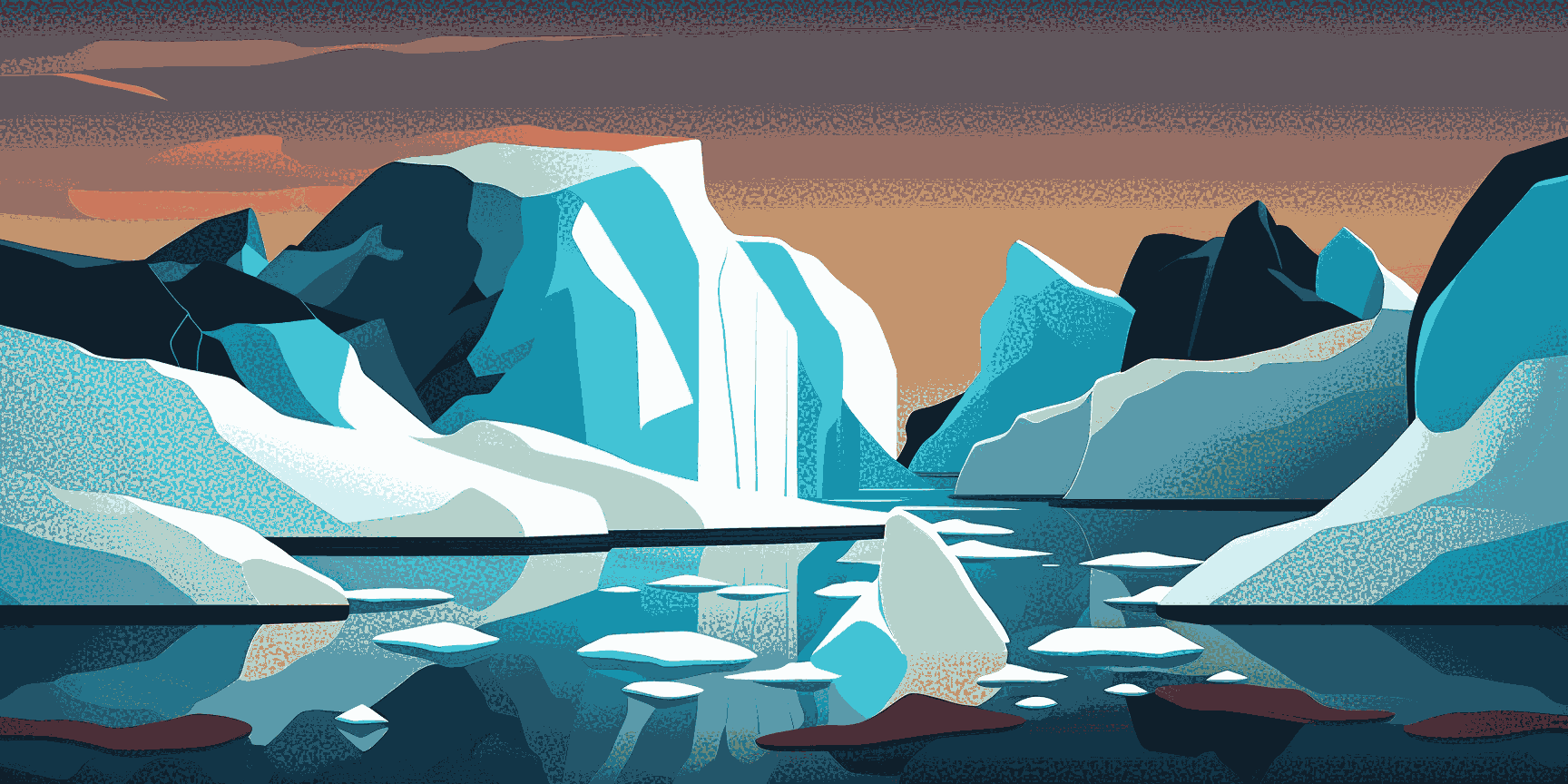Melting Greenland Ice Sheet: The Threat Of Rising Sea Levels
Global warming is causing glaciers to retreat and the Greenland ice sheet to melt at an alarming rate, threatening our planet's ecosystems and sea levels. As temperatures continue to rise, understanding the impact of this phenomenon is essential for our survival.
Table Of Content
- Introduction
- Melting Of The Greenland Ice Sheet
- Impact On Rising Sea Levels
- Mitigating The Threat Of Melting Ice Sheets
- Conclusion
- Cause
- Is Caused By
Introduction
The Greenland ice sheet is the world's second-largest ice sheet, covering an area of approximately 1.7 million square kilometers. The ice sheet is estimated to contain enough ice to raise the global sea level by about 7 meters if it were to melt entirely. In recent years, the ice sheet has been melting at an alarming rate due to rising global temperatures caused by climate change. This article will discuss the melting of the Greenland ice sheet, its impact on rising sea levels, and what can be done to mitigate this threat.
Melting Of The Greenland Ice Sheet
The Greenland ice sheet is melting at an accelerating rate due to the rising temperatures caused by climate change. According to NASA, the ice sheet is losing approximately 280 billion tons of ice per year. This is causing sea levels to rise by approximately 0.7 millimeters per year. The melting of the ice sheet is caused by a combination of factors, including warming oceans, rising air temperatures, and changes in atmospheric circulation patterns.
One of the most significant contributors to the melting of the Greenland ice sheet is the warming ocean waters. As the oceans warm, they melt the ice from below, causing the ice sheet to become thinner and less stable. In addition, the melting of the ice sheet can create a feedback loop, where the melting causes more melting. As the ice sheet melts, it becomes less reflective, and it absorbs more sunlight, causing the ice to melt even faster.
Impact On Rising Sea Levels
The melting of the Greenland ice sheet is a significant contributor to rising sea levels. If the entire ice sheet were to melt, it would cause sea levels to rise by approximately 7 meters. While it is unlikely that the entire ice sheet will melt, even a partial melting of the ice sheet could have a significant impact on coastal communities around the world.
Rising sea levels could cause flooding in low-lying areas, leading to property damage and displacement of people. In addition, rising sea levels could also cause saltwater intrusion into freshwater sources, leading to a shortage of drinking water. The impact of rising sea levels would be particularly severe in developing countries, where infrastructure and resources are limited.
Mitigating The Threat Of Melting Ice Sheets
To mitigate the threat of melting ice sheets, we must take action to reduce greenhouse gas emissions and limit global warming. This will require a concerted effort from governments, businesses, and individuals around the world.
Governments can take action by implementing policies and regulations that promote clean energy sources and reduce greenhouse gas emissions. Businesses can also take action by adopting sustainable practices and investing in clean energy sources. Individuals can take action by reducing their carbon footprint by using public transportation, reducing energy consumption, and adopting sustainable lifestyle habits.
In addition, we can also take action to adapt to the impact of rising sea levels. This could involve building seawalls and levees to protect coastal communities, relocating vulnerable communities to higher ground, and investing in technologies that can purify saltwater.
Conclusion
The melting of the Greenland ice sheet is a significant threat to coastal communities around the world. Rising sea levels caused by melting ice sheets could cause flooding, property damage, and displacement of people. To mitigate this threat, we must take action to reduce greenhouse gas emissions and limit global warming. Governments, businesses, and individuals can all play a role in reducing greenhouse gas emissions and adapting to the impact of rising sea levels. It is crucial that we act now to prevent the worst impacts of climate change and protect our planet for future generations.




